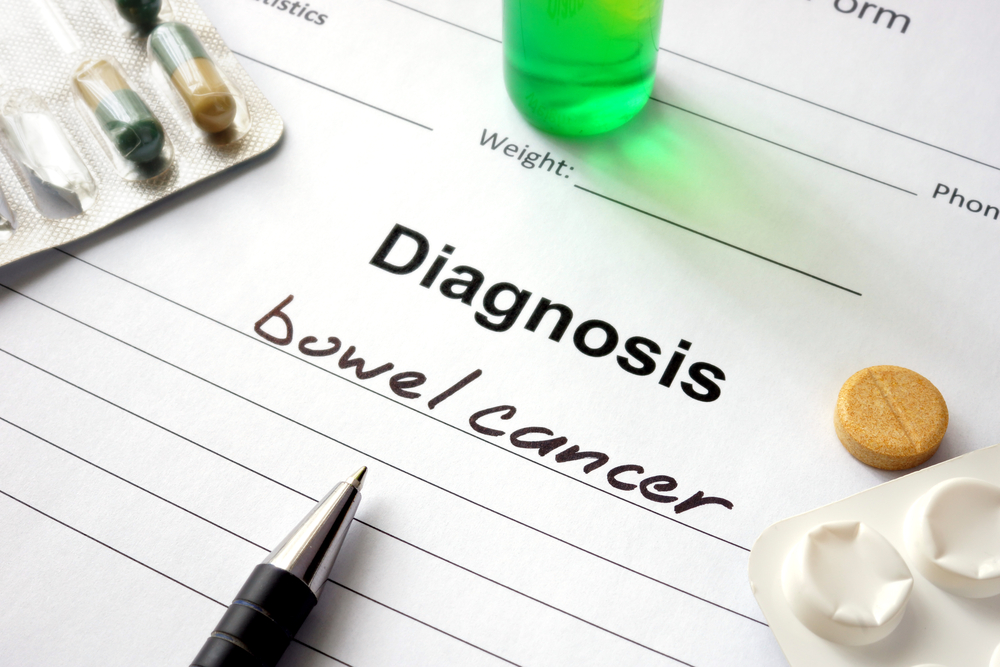By Dr Nicola Harrison
Bowel cancer numbers have increased in most European countries over the last 10 years – in some countries it has risen by 4%.
Bowel cancer in young adults (below 50 years of age) is in part due to inherited cancer syndromes (e.g. Lynch Syndrome and Familial Adenomatous Polyposis) although the majority of cases (80-90%) are randomly occurring and these figures are also increasing. When this was recognised, the campaign ‘Never Too Young’ was introduced in 2013 to raise awareness in younger adults of bowel cancer symptoms as well as ensuring doctors don’t dismiss any bowel symptoms in a young adult because ‘they are too young to have bowel cancer’.
When the occurrence of a disease increases by generation, that suggests the culprit is something in the environment rather than something biological / genetic, however it is unknown why this is happening.
The following issues may be associated:
- Obesity
- Dietary factors – alcohol and processed meat
- Lack of exercise
- Smoking
- Gut bacteria imbalance and inflammation
- Urbanisation and pollution
One study of patient records from an American Cancer Centre found that 50% of the younger adults with bowel cancer were overweight and 17% were obese.
There is mounting evidence linking diets high in processed meat and fat and low in fruits and vegetables, to early-onset bowel cancer. With unhealthy diets becoming more common in recent decades, the number of children and adults who are overweight or obese continues to rise. Also with the introduction of streaming channels (and the pandemic) we are spending more and more time sitting at home watching TV and less time being active which are both linked to higher risk of early-onset bowel cancer.
Bacteria that naturally live in your intestines (your ‘gut microbiome’) and help you digest food are very healthy in the right balance. Too little of the good bacteria and too much of the bad bacteria that produce toxins can cause inflammation and then disease. Also the body’s response to chronic inflammation can be to generate harmful chemicals that can mutate cell DNA and promote cancer. Gut bacteria are affected by the food and chemicals we eat, drink, and breathe. Some drugs (e.g. recurrent antibiotic use) can change the number and types of bacteria in our guts. We also know that certain bacteria can be accomplices in the growth and spread of bowel cancer, and some bacteria may affect how well certain cancer treatments work e.g. melanoma skin cancer treatment.
Environmental factors include things like air and water pollution, chemicals in soil and hence food, as well as pesticide use. It is therefore important to consider all of an individual’s environmental exposures over the course of their life, even including maternal exposure in the womb.
Symptoms of colorectal cancer lasting longer than a few days may include:
- Recent constipation or diarrhoea when usually go regularly with normal stool
- Rectal bleeding (bright red blood on paper on in toilet bowl)
- Blood mixed in with stool
- Abdominal pain or cramping
- Unintentional weight loss
- Anaemia (low haemoglobin levels)
- Fatigue and weakness
- Persistent feeling that you need to open your bowels again, shortly after opening them
Testing options:
- qFIT test – one stool sample to be done in comfort of own home. The kit can be put into any postbox without having to pay postage. Low cost as it is non-invasive. It tests your stool for invisible blood by looking for antibodies. This newer test can detect twice as many bowel cancers that its predecessor the FOB.
- Colonoscopy – A specialist doctor visualises the entire colon with a camera. If any abnormal looking tissue is seen, the doctor can take a sample through the camera equipment. Thorough cleansing of the bowel is required prior to this test using a very strong laxative known as bowel prep. This is an invasive test and can be uncomfortable.
- GI Effects Comprehensive Stool Profile – this is a 3 day set of stool samples sent to a partner laboratory to assess the whole gut microbiome. This also includes inflammatory markers, blood like the qFIT, yeast infections and parasite infections which allows us to try and rebalance your gut bacteria.
As part of our top-end Platinum Health Checks for both men and women, we perform the qFIT stool test as standard. If that comes back positive then we can refer on to a local centre of excellence for a colonoscopy.
If you would rather an online consultation, we can arrange a video call with one of our experienced GPs who will be able to discuss your symptoms and the above tests in more details and even arrange delivery to your home of a qFIT or GI Effects testing kit if required.
The bottom line is this:
Any change in bowel habit or bleeding from the bottom requires an urgent chat with your doctor so please do book an appointment with one of our GPs right away. Don’t be embarrassed – it could save your life.


